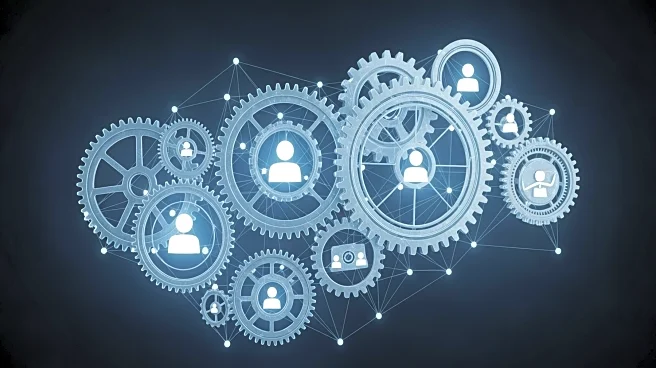What's Happening?
Deloitte has highlighted the importance of democratizing workforce planning to create a more collaborative and data-driven approach within organizations. This strategy involves providing managers and employees
direct access to data and analytics, enabling them to make informed decisions about workforce needs. The approach aims to expand workforce planning both horizontally and vertically, integrating augmented analytics and natural language processing to make data insights accessible without specialized skills. Companies like Roche and IBM are already implementing these practices, offering open databases and sharing critical roles and skills data to empower employees in skill-building and career development.
Why It's Important?
The democratization of workforce planning is significant as it allows for a more agile and responsive approach to managing human resources. By involving a broader range of employees in decision-making processes, organizations can better align their workforce strategies with business goals, potentially saving millions in operational costs. This approach also fosters a culture of continuous learning and adaptation, crucial in a rapidly changing technological landscape. Companies that adopt these practices may gain a competitive edge by efficiently utilizing talent and responding swiftly to market demands.
What's Next?
Organizations are expected to continue exploring the integration of advanced analytics and AI tools to further democratize workforce planning. This may involve creating new roles such as workforce strategists to guide resource allocation and optimize talent management. As more companies adopt these practices, there could be a shift towards more decentralized and data-driven HR functions, enhancing the ability to forecast and address workforce challenges proactively.
Beyond the Headlines
The move towards democratized workforce planning could have ethical implications, such as ensuring equitable access to data and opportunities for all employees. It may also lead to cultural shifts within organizations, promoting transparency and inclusivity in workforce management. Long-term, this approach could redefine traditional HR roles and necessitate new skill sets focused on data literacy and strategic planning.










